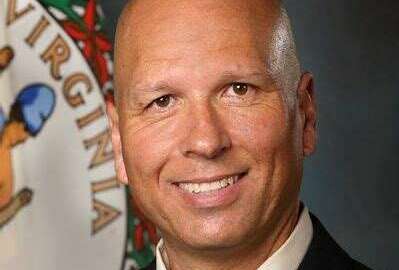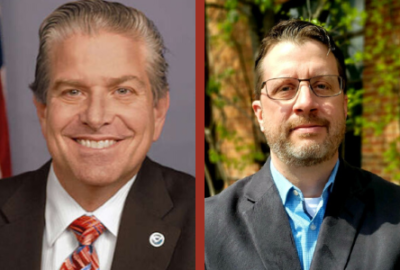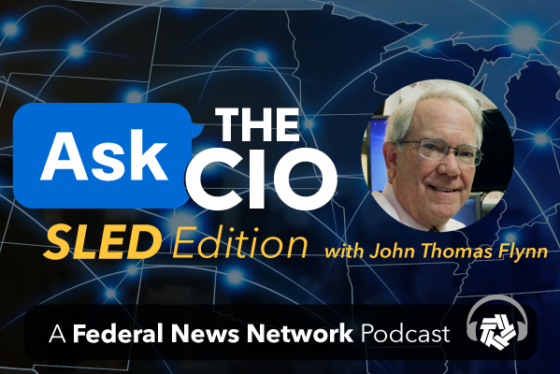
Inventory of state data assets crucial for CDO: Part 2
The chief data officer role compares to CIOs' Y2K responsibilities, requiring significant relationship building across the enterprise when statutory authority m...
This is a continuation of Carlos Rivero’s interview with Ask the CIO: SLED Edition on June 25.
Last week during my interview with Carlos Rivero, the Commonwealth of Virginia’s first chief data officer (CDO), I opined that the growing establishment of state CDO positions across the country reminded me somewhat of the creation of the state chief information officer position back in the mid-1990s. It’s gradually becoming commonplace as half the states now have a CDO.
In addition, the position’s placement within the state organizational hierarchy also continues to evolve with about half reporting to the state CIO while the other half are located within the states’ “administration secretariat.” Not unlike the state CIO.
CDO’s first objective: Inventory of applications
Rivero’s initial task as CDO likewise reminded me of the role that I and other state CIOs faced during the Y2K drill some two decades ago. That remediation of the two-digit date code in hundreds, even thousands of state application systems began with development of an inventory of these systems. Once applications were identified an analysis of each was made to determine if it contained a date code element which needed to be enlarged to four digits. As one can imagine date codes are ubiquitous in computer applications, and in California we catalogued more than 3,000 apps which needed to be fixed.
Oy vey! I asked Rivero to confirm my assessment.
“That’s a great question, John. And yes, absolutely. We need to have an understanding of what our data assets,” he said. “We need to have a data inventory for us to even be able to call it an asset. I mean, how do you have something that’s an asset that you’ve never inventoried? And you don’t know exists?”
Having that data inventory and classification in a catalog of state data assets was critically important to support data discovery across all of the different applications within the state enterprise.
“And like you said, we have thousands of applications in production across the Commonwealth right now that are all generating data on a regular basis. And we can derive additional value from those data assets, but only if we know they exist,” Rivero said.
Obviously, with thousands of state applications in the Commonwealth’s inventory, a serious challenge presents itself in terms of resources at the disposal of the CDO. In Rivero’s case this challenge is compounded by the fact that the CDO office in Virginia consists of one FTE: Him.
Relationship building with agencies key
One of the challenges of being successful whether you’re a CIO or a CDO is your ability to garner the cooperation of other departments, gaining confidence and acceptance of what you’re trying to do across various intergovernmental levels. One of the things we say in state government circles is that if you want to get something done, get it in statute or have the governor promise it in the state of the state speech.
The Defense Department for example has legislation that created its CDO position and it also created a legal mandate for DoD agencies to share their data with the chief data officer. Unfortunately, neither the legislation nor the speech are options available to facilitate Rivero’s mission, so he has to do it the old fashion way.
“Right now, that’s relationship building,” Rivero said. “We have not legislated that agencies must share their data with the chief data officer because there are a variety of different data types and data classifications that are in use across the Commonwealth, and to make a blanket statement like that is very difficult because of the variety and diversity of data assets that we have.”
Legal framework for data sharing
In any case, he said that all of the agencies are strongly encouraged to work with the CDO in identifying data assets that are suitable, not just for open data, but also for sharing on very specific projects.
“So as we identify different projects that are amenable for data sharing, or support data sharing, that’s where a lot of the focus has been,” he said.
Read more: Ask the CIO: SLED Edition
Currently, the Commonwealth is moving towards a more holistic view of data sharing across the state by creating the Commonwealth of Virginia Data Trust. This is a legal framework that facilitates data sharing among agencies by clearly identifying and articulating the roles and responsibilities of each of the individual entities involved in a data sharing relationship.
So while Rivero doesn’t have authority over individual employees across the Commonwealth, he does have several tools at his disposal.
“What I do have is the authority to establish business rules, guidelines and best practices for the use of data, including open data in the Commonwealth,” he said. In addition, through his management style, he encourages and persuades agencies to participate in data sharing and creating not just the technical infrastructure, but also the legal and governance framework necessary to support data sharing. “And that’s where the Commonwealth Data Trust comes into play.”
This persuasion and encouragement he fosters is also the most rewarding part of his job.
“Working with people, and being able, like we said earlier, to build those relationships, and start creating that foundation for how the organization needs to operate, from a personnel perspective, influencing the culture of that organization, to be more data driven and to be more data aware,” Rivero said.
That’s why the CDOs web based training program is so important.
“It’s being able to provide training to every member of the organization, regardless of their role or title, on the importance of data, data governance, and just having a better understanding of the value of data within the decision making of the organization,” he explained.
Copyright © 2024 Federal News Network. All rights reserved. This website is not intended for users located within the European Economic Area.






